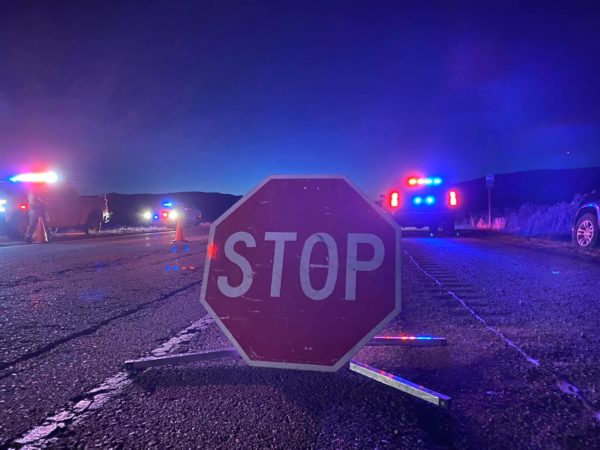
- Details
- By Levi Rickert
WINDOW ROCK, Ariz. — The Navajo Nation has 241 confirmed cases of coronavirus, an increase of 27 from Wednesday, the Navajo Nation reported Thursday evening.
There remains a total of eight confirmed deaths related to COVID-19.
The Navajo nation also reported that there is an overall total of 1,796 individuals who have tested negative for COVID-19.
The Navajo Nation’s nightly curfew remains in effect from 8:00 p.m. to 5:00 a.m. The curfew does not apply to essential employees reporting to or from duty, with official identification and/or a letter of designation from their essential business employer on official letterhead which includes a contact for verification.
In a press release that provided the Thursday's update on the COVID-19, Navajo Nation President Jonathan Nez annouced that citations will be given to individuals who violate the curfew.
“The Navajo Police will start issuing citations soon for individuals who violate the curfew that’s in place. We’re seeing higher number each day because people continue to go out into public. The only way we’re going to beat the virus is to stay home as much as possible,” President Nez said.

The 241 confirmed positive cases include the following counties:
Navajo County, AZ: 104
Apache County, AZ: 22
Coconino County, AZ: 63
McKinley County, NM: 16
San Juan County, NM: 25
Cibola County, NM: 4
San Juan County, UT: 7
For more information including reports, helpful prevention tips, and more resources, please visit the Navajo Department of Health’s COVID-19 website at http://www.ndoh.navajo-nsn.gov/COVID-19. To contact the main Navajo Health Command Operations Center, please call (928) 871-7014.
For up to date information on impact the coronavirus pandemic is having in the United States and around the world go to: https://www.worldometers.info/coronavirus/country/us/?fbclid=IwAR1vxfcHfMBnmTFm6hBICQcdbV5aRnMimeP3hVYHdlxJtFWdKF80VV8iHgE
For up-to-date information about COVID-19, Native News Online encourages you to go to Indian Health Service’s COVID-19 webpage and review CDC’s COVID-19 webpage.
More Stories Like This
Native News Weekly (August 25, 2024): D.C. BriefsNavajo Nation Mourns the Passing of Former Vice President Rex Lee Jim
Deb Haaland Earns Endorsement From Communications Workers of America Local 7076
University Soccer Standout Leads by Example
Two Native Americans Named to Democratic Congressional Campaign Committee's“Red to Blue” Program
Help us defend tribal sovereignty.
At Native News Online, our mission is rooted in telling the stories that strengthen sovereignty and uplift Indigenous voices — not just at year’s end, but every single day.
Because of your generosity last year, we were able to keep our reporters on the ground in tribal communities, at national gatherings and in the halls of Congress — covering the issues that matter most to Indian Country: sovereignty, culture, education, health and economic opportunity.
That support sustained us through a tough year in 2025. Now, as we look to the year ahead, we need your help right now to ensure warrior journalism remains strong — reporting that defends tribal sovereignty, amplifies Native truth, and holds power accountable.
 The stakes couldn't be higher. Your support keeps Native voices heard, Native stories told and Native sovereignty defended.
The stakes couldn't be higher. Your support keeps Native voices heard, Native stories told and Native sovereignty defended.
Stand with Warrior Journalism today.
Levi Rickert (Potawatomi), Editor & Publisher

